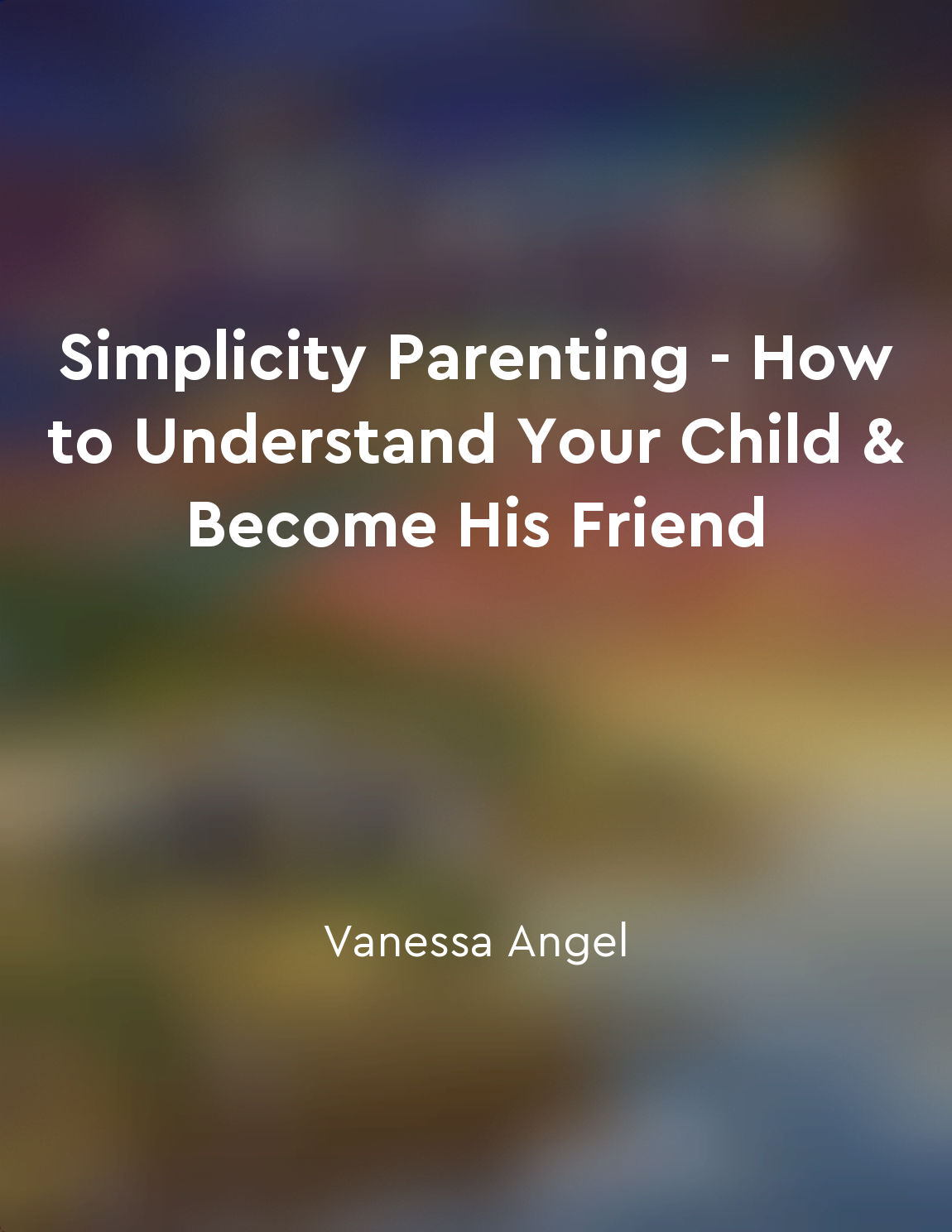Toxic parents may struggle with empathy and emotional intelligence from "summary" of Toxic Parents by Susan Forward
Toxic parents often find it difficult to empathize with their children's feelings and emotions. This lack of empathy stems from their own emotional limitations and struggles. They may have never learned how to properly process or express their own emotions, which makes it challenging for them to understand and validate their children's feelings. As a result, toxic parents may dismiss, minimize, or even ridicule their children's emotions, leaving them feeling unheard and invalidated. Furthermore, toxic parents may also lack emotional intelligence, which is the ability to recognize, understand, and manage one's own emotions as well as the emotions of others. Without emotional intelligence, toxic parents may react impulsively or irrationally to their children's emotions, further exacerbating the emotional disconnect between them. Their own unresolved issues and emotional baggage can cloud their judgment and prevent them from responding to their children in a compassionate and supportive manner. In addition, toxic parents may struggle to communicate effectively with their children due to their limited emotional intelligence. They may resort to manipulative or controlling tactics to maintain power and authority over their children, instead of engaging in open and honest communication. This lack of healthy communication can lead to misunderstandings, conflicts, and emotional distance within the parent-child relationship.- Toxic parents' difficulties with empathy and emotional intelligence can have lasting effects on their children's emotional well-being and development. Without the necessary emotional support and validation from their parents, children may struggle to form healthy relationships, regulate their emotions, and navigate the complexities of the world around them. It is essential for toxic parents to recognize their limitations and seek help to break the cycle of toxic behavior and foster healthier, more empathetic relationships with their children.
Similar Posts

Embrace simplicity in all aspects of life
Living a life of simplicity involves decluttering not just our physical surroundings but also our thoughts and emotions. By str...
Recovery from codependency is possible with dedication and support
Achieving recovery from codependency is indeed attainable as long as you are dedicated to the process and have the necessary su...
Set clear limits and boundaries
Setting clear limits and boundaries is crucial when it comes to parenting. Children need to know what is expected of them and w...
Stay calm and composed during discipline
The ability to remain calm and composed during moments of discipline is absolutely crucial to effective parenting. It is unders...
Set realistic goals and celebrate achievements
Setting realistic goals is crucial for our happiness and overall well-being. When we set attainable goals, we are more likely t...

Understand the power of dark psychology secrets
In order to truly grasp the depth of dark psychology secrets, one must be willing to delve into the realm of human behavior and...

Trusting intuition is vital in recognizing manipulation
Trusting intuition is a powerful tool when it comes to identifying manipulation. Our intuition often picks up on subtle cues an...
Take a proactive approach to prevent problems
When it comes to addressing challenging behaviors in our kids, many of us tend to be reactive rather than proactive. We wait fo...
Develop healthy boundaries
Developing healthy boundaries is essential in establishing and maintaining healthy relationships. Boundaries serve as a form of...
Recognizing our own role in perpetuating conflicts is essential for growth
It is crucial for us to understand our own contributions to conflicts if we wish to evolve and progress in life. This self-awar...

